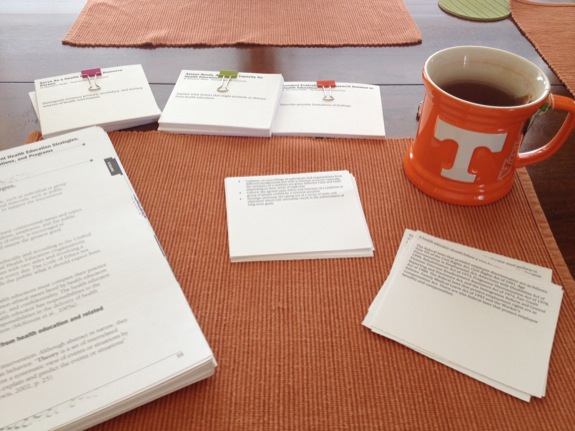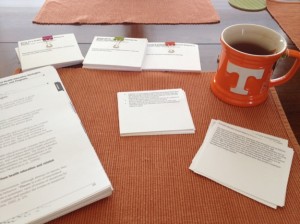
We all take breaks while studying, but how many of us can truly say that we didn’t use study breaks as a way to procrastinate our studies. Whether you are a child or an adult, at some point during our academic years we have all used this excuse to stay away from our studies. Nevertheless, it is important to know that there is a fine line that distinguishes a study break from not wanting to study at all!
 Over the years ‘study breaks’ have come to mean many things serving more as distractions rather than what a study break really means. It could mean spending a good hour watching our favorite program or spending time on Facebook, Twitter, celebrity chat etc. However, let’s not forget playing with our cell phones, attending unreasonable calls from friends so on and so forth. So let’s find out what a ‘study break’ really means and let’s explore what we didn’t know about study breaks?
Over the years ‘study breaks’ have come to mean many things serving more as distractions rather than what a study break really means. It could mean spending a good hour watching our favorite program or spending time on Facebook, Twitter, celebrity chat etc. However, let’s not forget playing with our cell phones, attending unreasonable calls from friends so on and so forth. So let’s find out what a ‘study break’ really means and let’s explore what we didn’t know about study breaks?
Study breaks are taken to refresh our minds so that we can focus on the task at hand, whatever it may be. A good study break consists of an activity that allows you to take your mind off studying for a brief time period. This time is spent in refreshing our mind to prepare it for the next task and use our mind to its full potential with renewed energy!
Apart from this there are 2 aspects that we all tend to overlook when we take ‘study breaks’. Most of us fail to realise when is the appropriate time to indulge in a study break and what should we do in our study breaks? So let’s discuss these aspects by answering these simple questions.
When should you take a Study Break?
Ideally a study break should be taken after every hour for the duration of 10 to 15 minutes. If your concentration span differs or if you are unable to figure out when is the right time to take a break? Then here are some tips to help you in identifying when it is probably time for a break:
- if you start feeling restless
- if you feel your concentration has gone for a toss
- if you are no longer registering or absorbing what you are reading
- if you feel that you should take a break
Are sign that you need to take a break. But ensure that you know the difference between a study break and procrastinating your study sessions. In order to do this you need to take study breaks for short intervals and not let it be an hour long break. With that settled let’s discuss the next question.
What should you do during your Study Break?
During your study break you should engage in activities that don’t involve studies, a change in environment, refrain from watching the idiot box! keep the activities short and shuffle the activities.
Activities that Don’t Involve the Subject
If you choose to read a paper after you have recently done accounts or finance, stay away for articles that involve accounts or finance.
A change in environment
It is preferable if you walk to the drawing room or take a stroll in the garden, if you have been in the study room. A change in the environment will definitely lift your spirits.
Don’t Watch the Idiot Box
Trust me when I say watching the television is a bad idea. Instead of refreshing you it makes your mind go dead and tires you further. The idea of having a break is to engage in activities that excite you, make you happy, clears your mind and that will enable you to focus better in the next round. There are plenty of things that you can do apart from watching the television, as you will soon see.
Keep the Activities Short
Since a break is supposed to be not more than 10 to 15 minutes you need to engage in activities within the specified time limit. Apart from this the activity should will allow you to get back into the groove of studying.
Shuffle the Activities
It is preferable to engage in a variety of activities in different study breaks as this will boost you concentration. For instance if you have taken a power nap earlier, go for a stroll in a garden nearby instead, prepare a cup of hot chocolate in the next one, listen to your favorite music in the one after that.
Some other things that you can do are:
- Listen to your favorite music
- Read a newspaper or a book
- Leaf through a magazine
- Take a walk
- Go for a cycle ride
- Talk to someone
- Meditate
- Engage your mind with a mental exercise
- Indulge in a light snack or drink a fruit juice
- Take a nap
- Play your favorite instrument
- Go on a short drive
Now that you know what a study break really is, are familiar with the signs that tell you that it is time for a break, are aware of the various alternatives available to you apart from watching television and are clear about the difference between a study break and simply not wanting to study, it’s time you get back to studying. Besides you are now aware of what it takes to do well and how taking study breaks can help you to be a topper in your class. Well what are you waiting for, go ahead and try these alternatives to help you to perform well.
